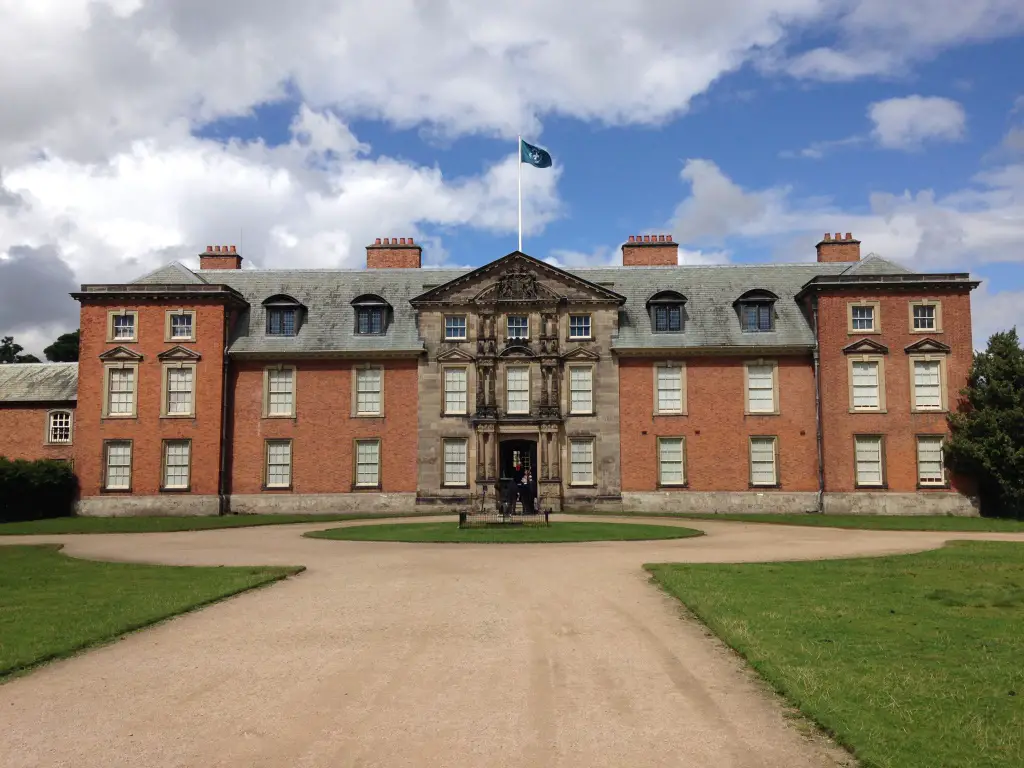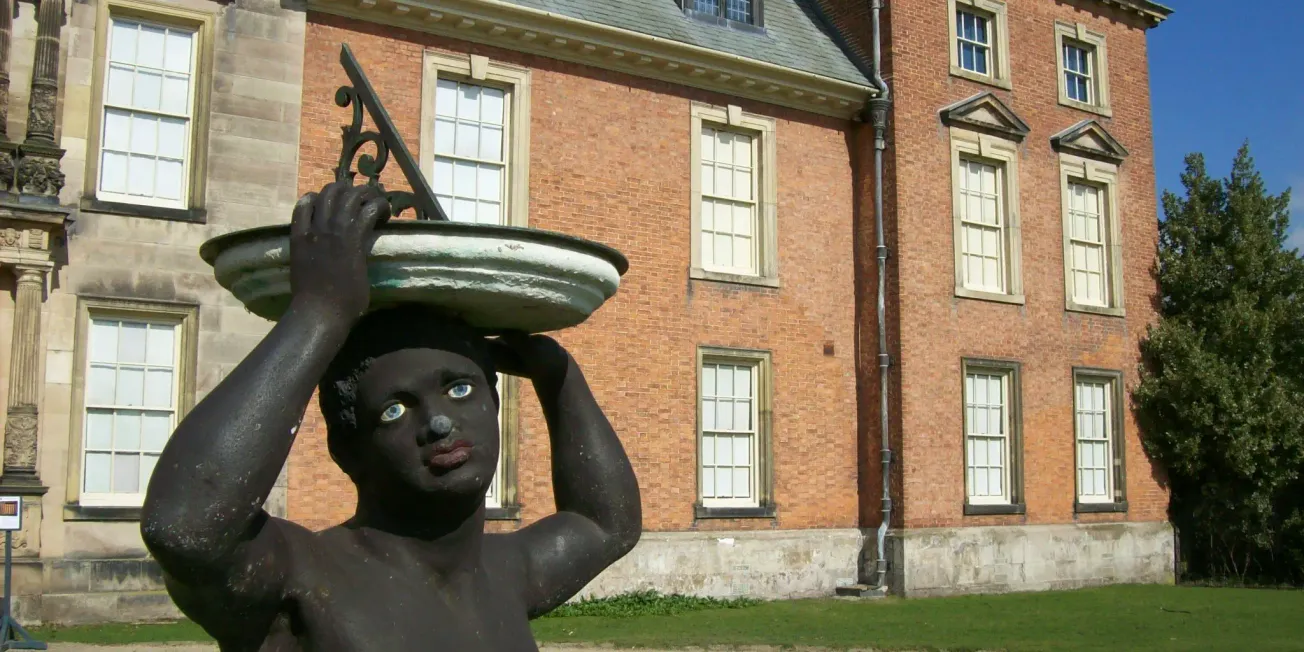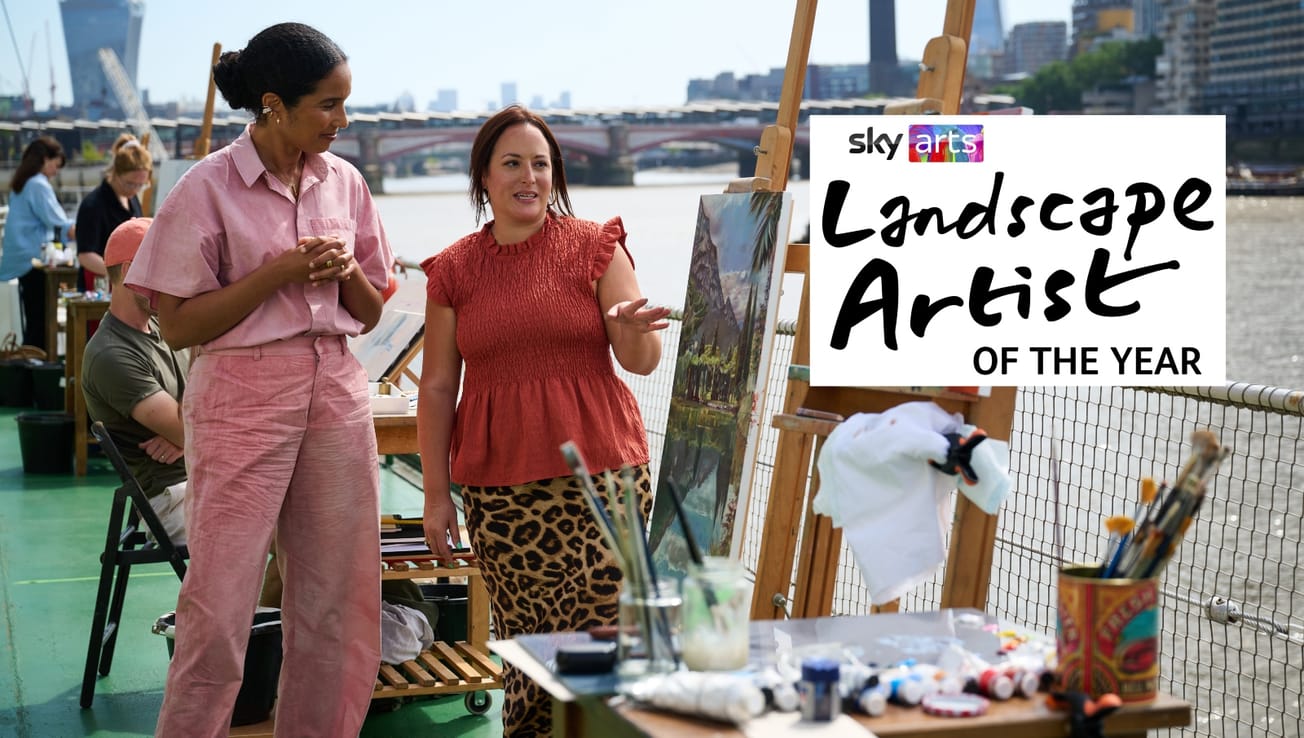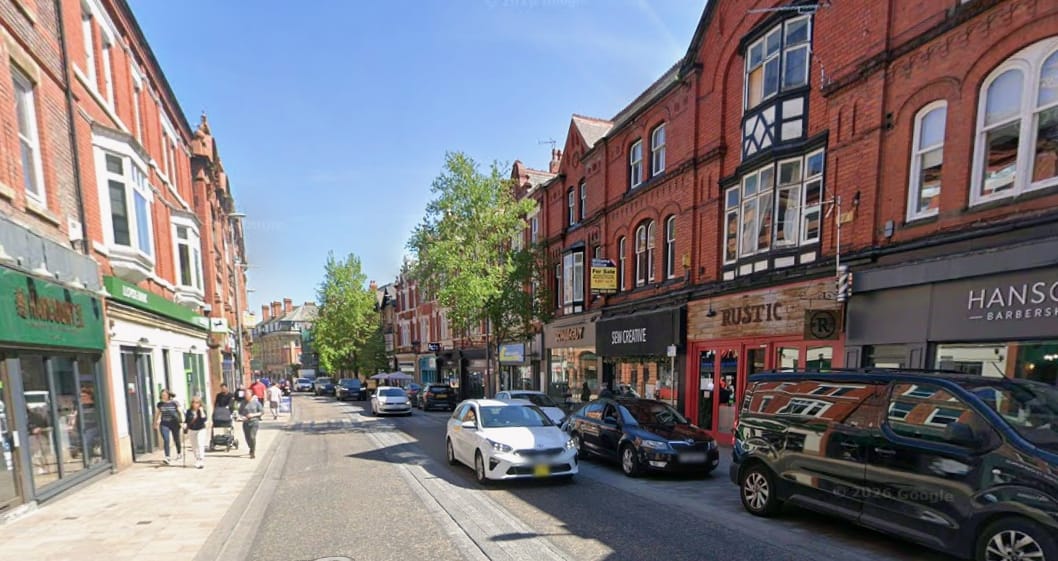Dunham Massey has said it is “reviewing” a statue in its grounds that depicts a black male carrying a sundial.
Statues associated with Britain’s colonial and slavery pasts have come under the spotlight in recent days since a statue of Sir Edward Colston, a slave trader, was forceably removed from Bristol city centre during a Black Lives Matter protest at the weekend.
A statute in the garden forecourt close to the main entrance of Dunham Massey Hall depicts a kneeling African figure wearing a skirt of feathers or leaves and carrying a sundial above his head.

According to Historic England, the life-size stone structure – with a metal sundial – dates back to the early 1700s, and is thought to have been made by the sculptor Andries Carpentière.
A plaque close to the statue reads: “This sundial is in the style of one commissioned by King William III. It represents Africa, one of four continents known at the time. The figure depicts a Moor, not a slave, and he has knelt here since before 1750.”
A “Moor” derives from “Blackamoor”, a style of European art that depicted stylised figures, usually African males, in subservient or exoticised form. The term “Blackamoor” is now generally considered to be racist and culturally insensitive.
Responding to a enquiry about the sundial from a visitor on its Facebook page, the National Trust-owned Dunham Massey said it was “currently reviewing” the statue and would be providing more information “shortly”.

It said: “The National Trust looks after places and collections that are linked to world histories in so many ways including the legacies of colonialism and slavery.
“We have a long way to go but we’re working to tackle the often painful and challenging histories attached to our places and collections through interpretation and exploration. In relation to this statue, we are currently reviewing it and we should be able to give you more information shortly.
“We recognise the need to explore the contested stories behind places. It is crucial we do it in a high-quality, properly researched way, and in a way that is respectful and sensitive. We have no wish to remain silent on this and are grateful to you for sharing your views.”









